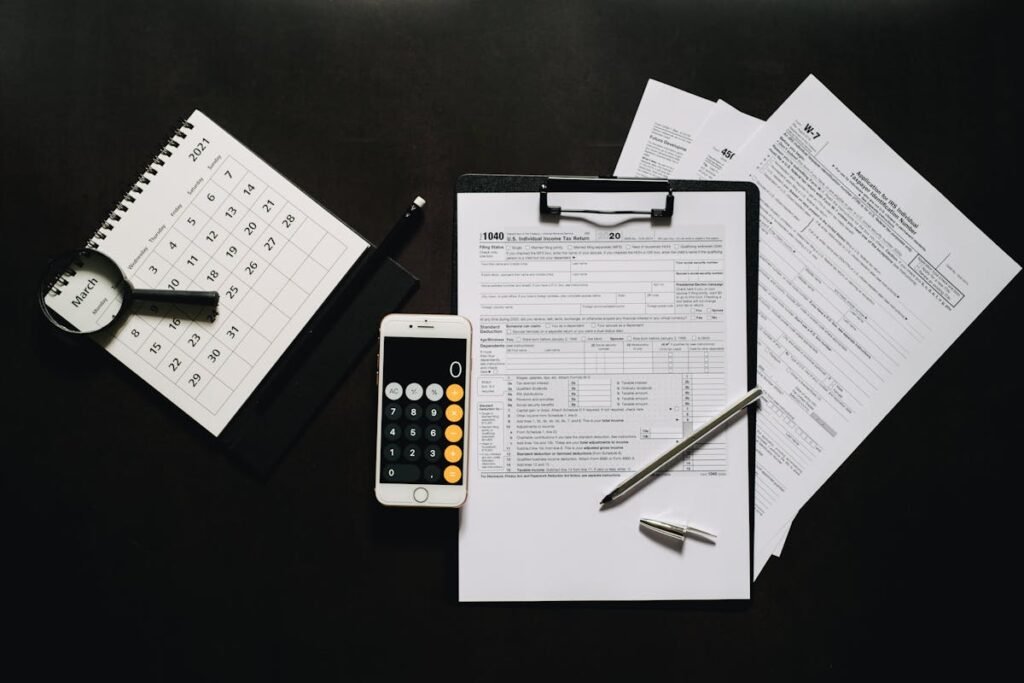personal investment planning
With an increasingly challenging economic scenario , with rising interest rates and persistent inflation, many have questioned the importance and need for personal investment in savings, Real Estate Credit Letters, Treasury, among other applications.
With such a diversified portfolio and options with low or high risk levels, you need to make a well-structured plan to achieve your financial goal. Check out the 15 steps below to create a smart plan and make assertive investments.
Define your goal personal investment planning
With an increasingly challenging economic scenario , with rising interest rates and persistent inflation,
What are you looking for when making the investment? To have money to travel? To accumulate assets? To secure your retirement? And how much do you want to invest? Part of your salary or your 13th salary ?
Manage your income and expenses
You will want to track and manage your monthly income and expenses, that keeps you on target. This is a smarter way of controlling your spending and variables. Ideally, you should write down your expenses- from espresso to the phone bill. And then you will realize how tiny things in your daily life influence your bottom line.

Research and compare prices before you buy
Prices at different stores might differ significantly. Therefore, before making a purchase, constantly compare prices elsewhere. Don’t overlook internet retailers either.
Buy only what is really necessary
Next, when you are going to spend money on something, think twice about whether that is really necessary for you or just because it was an impulsive decision. You can also prepare ahead – shop only at the supermarket when your stomach is full. Another thing, try to spend money on items only while you are at home, because malls and stores are full of traps to spend money on consumption.
Avoid installment payments
Make an effort to always pay in cash, especially when you have a discount. This way, in addition to saving money, you won’t delay paying off debt.
Have goals personal investment
Set goals to turn your results into numbers. For example, do you want to achieve your dream in a year? How much money do you intend to save by then?
Analyze your financial progress every month
You also have to concern yourself with the short term so you could achieve your ultimate goal. For example, if your plan would be to save R$1,200 within the year, try saving R$100 for the month. Try to go above and beyond but never go below that number while saving. In this way, you will get to your goal in less time.
Be realistic
In terms of the economy, one needs always to be very realistic and almost pessimistic regarding investment returns. Indeed, several variables must always be taken into account, particularly interest rates.
Set a ceiling for each type of expense
Not planning your monthly expenses will lead to a loss of control over your monthly expenses. Set aside an amount for restaurants, gifts, groceries, etc. Whatever is left over each month will be savings that you can save.
Take advantage of cash discounts
The option of paying in cash almost always comes with an attractive discount. Try to use this payment method to avoid getting into debt in the coming months.
Make daily notes of everything you spend
A little bread or biscuit at the bakery that you don’t write down in your expense report can make a huge difference and blow your budget. Sometimes we buy a lot of things throughout the day for very small amounts and don’t pay attention to these bills. If you start writing everything down, you might be surprised at how much you spent throughout the day without even realizing it.
Make smart applications
This will save you more personal investment Never let your money grow interest because then you have to give interest. Grow interest in investments. The better the investment, the more money you get on the last day of the month.
Grow your savings as your salary increases
Not keeping your expenses stable due to an increase in your income is not a smart move. Did you get a pay raise or receive money that you weren’t expecting? Try to maintain the same pattern and don’t spend anything more than you planned because of it. Instead, take advantage of the money you receive to save it.
Don’t buy during seasonal and extra times
Avoid seasonal products. They tend to be more expensive during special dates. For example, cod during Holy Week, Easter eggs, and panettone at Christmas. You can wait to buy them after these dates.
Beware of loans and overdrafts
This habit, along with using a credit card, are the most dangerous for losing control of your finances. Avoid using your bank limits. Interest rates are extremely high and you could end up in debt to the bank forever.
Another dangerous practice is taking out loans to buy something you may not even need, or to start a business. If you start a business without working capital and with the debt acquired through the loan, your business will depend on a very satisfactory return. If something goes wrong, say goodbye to many good nights of sleep. You have created a big problem.
7 biggest mistakes a person who doesn’t want to get rich can make
DO NOT CREATE ASSETS
Put your money to work for you by creating assets to generate more income. Examples: Fixed income investments; Rental properties; Stock investments; Equipment or machines to generate/increase income from your work
NOT HAVING KNOWLEDGE OF YOUR LIABILITIES
Liabilities include everything that extracts money from your pocket. A car for instance, is a liability because there are costs for fuel, property taxes, insurance, etc. You should find out how much your liabilities cost you each month.
DO NOT INCLUDE THE LIST OF ALL EXPENSES
Write it all down, and review it at least once a month. If you’re examining your expenses every day, it’s extremely unlikely you will be caught off guard at the end of the month. Seek out the most appropriate means, what works best for you.
AMASS DEBT
Do not continue gathering debts in a country where the cost of money is very, very high. Try to renegotiate and pay them off as quickly as possible. Only then you can move from a situation like the one where you are right now to something much better.
JUST SAVE AND DON’T INVEST
If you don’t invest your money, then inflation will eat away your savings. Wealth growth magic comes from compound interest. So if you don’t invest your money, saving is just a waste of time. You still lose money even by saving.
NOT DOING FINANCIAL PLANNING
Formulate your financial plan. There is a saying: “For those who do not know where they are going, any road will take you there.” You need to know exactly where you want to go in order to achieve your goals.
NOT FOCUSING ON INCREASING YOUR INCOME
You need to earn more so that you can save more and speed up the process towards independence. Look elsewhere for income so that you do not only save 100% of your income. Know how to invest.
